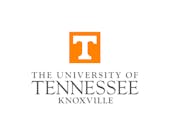Joshua S. Fu is Chancellor's Professor, John D. Tickle Professor of Engineering, James G. Gibson Professor in Climate Change, and Professor in the Department of Civil and Environmental Engineering and the Inaugural Professor of the UT-ORNL Bredesen Center for Interdisciplinary Research and Graduate Education, Joint Appointment Professor in Computational Earth Sciences Group in Computational Sciences and Engineering Division at Oak Ridge National Laboratory.
The focus of Fu’s research work includes climate change impacts on energy infrastructure, air pollution, water availability, and extreme events like heatwaves, floods and droughts, wildfires, and human health. The additional focus is to utilize artificial intelligence (AI) and machine learning techniques on climate change, human health, and mapping global total atmospheric deposition. Currently, my research team is utilizing a petascale supercomputer to simulate Arctic ice melting and improve the model on coupling chemistry and climate modules in a global (1 degree) scale and downscaling to a regional scale (4 km) and participating in developing the new chemistry solver for the US DOE’s Energy Exascale Earth System Model (E3SM).
Fu has served Vice-Chair of the Measurement-Model Fusion for the Global Total Atmospheric Deposition (MMF-GTAD) of the new initiative in the World Meteorological Organization (WMO), contributed as a co-author of the Final Report of the Hemispheric Transport of Air Pollution for the United Nations Economic Commission for Europe (UN Task Force Hemispheric Transport of Air Pollution) and reviewing committee member for air quality status in East Asia for the EANET, a governmental consortium in East Asia and located in Japan. He also was a co-author of the Technical Report, Climate Change, and Infrastructure, Urban System, and Vulnerability, to the Department of Energy in support of the National Climate Assessment in 2012. He served as an international adviser/expert on East Asia/China air quality modeling assessments such as the Beijing and Shanghai air quality modeling assessment for the 2008 Olympic Games and the 2010 Shanghai World Expo, a modeling lead of the Model Intercomparison Study (MICS-Asia), and a modeling member for HTAP on air quality and climate change. He contributed climate modeling results for IPCC AR5 based on RCP 4.5 and 8.5 scenarios.
He develops and provides scientifically sound, cost-effective analysis tools to design and develop complex climate and environmental model applications. There is an example, he is one of the initiators for the Air Benefit and Attainment Assessment Cost System (ABaCAS) that has been used internationally.
Fu has published more than 160 referred journal articles and 110 peer-reviewed conference proceedings. He has been an invited speaker including keynote and lecture for more than 100 times in Asia, Europe, and the US. Also, and has been interviewed or reported on the Wall Street Journal, New York Times, Science Daily, @EurekAlert!, Red Orbit, and more than 30 media to discuss issues of international and national importance on climate change/extreme events and air quality.
Fu obtained his Ph.D. from North Carolina State University, MS from UCLA, and BS from Taiwan’s National Cheng Kung University.
His areas of research include:
Wildfires and human health
AI/Machines learning in air quality, climate, forest/crops, health, socioeconomic data
Global and regional climate, energy, and air quality
Peta-scale computing on coupled climate and air quality modeling
Climate downscaling toward impacts of air quality, water resources, human health
Assessment of hemispheric transport and climatic effects of air pollutants:
Global and Regional Modeling of Ozone and Particular Matter
Agricultural Air Quality (ammonia, methane)
Transportation conformity and air quality
Air Toxics Modeling – link to the homeland and international security
Develop environmental modeling and decision support tools for complex multi-discipline ecosystem
Genetic algorithm and stochastic-based optimization applications in a high-performance computing
Data management/data mining and information technology applications in environmental management systems
Reliability, uncertainty, and risk analysis in environmental systems
The human dimension in environmental systems
Experience
-
–presentProfessor of Civil and Environmental Engineering , University of Tennessee
- Knoxville, Tennessee, U.S.
- Website
- Article Feed
- ORCID
- Joined


